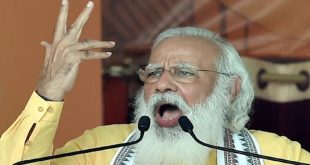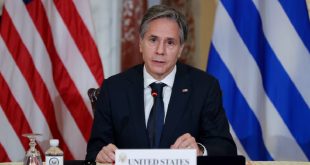By Malik Achakzai:
Having his paternal connection to the Ahmed Shah Abdali’s top general and the conqueror of Panipath, Barkhurdar Khan Achakzai, and maternally his lineage comes from Abdullah Khan Achakzai, the martyred and sparkle of the first Anglo-Afghan war, for Abdul Samad Khan Achakzai aka Khan Shaheed his political inspiration was sparked by King Amanullah Khan. Recalling his first sight of King Amanullah Khan, he said it was the day when he went to Chaman the first town where King Amanullah Khan was leaving through train for his Europe tour. Among the people of the area this young teenager was deeply observing the “Afghan King” and had firmly believing in him as own king despite that Khan Shaheed had opened eyes in a territory, which was well before the time of King’s visit had become under the rule of great Britain.
Early in the morning the first tragic seen for Khan Shaheed was when the British guards ready for King Amanullah Khan’s receiving had dirt on their boots and was cleaned with cloth pieces in the hands of “Indian servants”. This shocked him and kept him in deep thoughts, the second was when the King arrived and a huge mass of the Pashtuns was gathered and the King came to their side they kept unmanaged discussion with him; which the King couldn’t hear.
According to Khan Shaheed the King asked “Is there is anyone from you to talk to?”
It imprinted on Khan Shaheed’s mind that our people are not organized and have no political leadership, which was clearly known from the King’s question. He further writes that the King went from them without having any chat and discussion with them, which was a kind of “disappointment”.
These impressions made Khan Shaheed think to organize his people for the political struggle, which was the need of the time otherwise they were in a greater number but unorganized mass will never become liberated from the “boot cleaning duties”. “No matter how much wealthy we are and what are our history, culture and civilization,” he said. Khan Shaheed was a firm believer of liberation; as human beings are born free and should live free; freedom is their natural right.
The sub-continent was under the rule of Britishers; political movements were underway to liberate the continent from the rule of English powerful army. Khan Shaheed wanted unity of the Pashtun-Afghans and political awareness of their liberty and history was need of the time. As the subcontinent had been under invaders’ empire so the masses were not allowed to have freedom of speech, opinion, press and democracy was never felt in the entire continent.
Khan Shaheed always considered Afghanistan his motherland; as he writes about the Afghan Kings “our own King and Kingdom”; his writings are full of the Pashtun-Afghan terms, which clearly means he believed that greater Afghanistan existed and never let any power of the world to rule over them whether it was Alexander, Changez Khan, Hulagu Khan, Arabs, Sassanids or the Sikhs. Every one of them had to see the fury and resistance in the form of Afghan National Movement.
The love of Afghan liberation and Afghan unity was in his blood from paternal forefather Barkhurdar Khan Achakzai, the conqueror of Panipath and Ghazi Abdullah Khan Achakzai the sparkle of first Anglo Afghan war.
Khan Shaheed believed in peaceful political movement; this is why he’s arrested in his 13th year as a political prisoner by the administration for arranging a demonstration in front of Gulistan High School. And he states that he respect his brother “Abdul Salam Khan Achakzai” because he’s the sole breadwinner for his family and support him economically and has given him the freedom to remain active for the political struggle. But would never support Salam Khan if there is a “tribal or personal fight” because Khan Shaheed sees the fight is never a way to overcome our issues; so remaining peaceful and rational is the only way to bring awareness among people and enable them to be active for their political and basic human rights.
This is the reason Khan Shaheed spent 33 years (out of his life 66 years) behind the bars. He also remained under house arrest by the British and also by Pakistan after coming into existence in 14th August 1947. He never missed a day to aware his people; and was the one man crusade, who, finally formed Anjuman-e-Watan political party, then Wror Pashtun and National Awami Party Pashtunkhwa. His political legacy is still active in Pashtunkhwa Milli Awami Party, led by his son Mahmood Khan Achakzai.
Khan Shaheed never compromised on democracy; he was a firm believer that the people would change our fate not of the “dictators” orders. Neither he compromised with the British nor after them with the Pakistan army’s powerful generals who violated the Constitution and ruled the country under martial laws.
He loved his language, culture, history and geography. When National Awami Party (NAP) failed to provide the Pashtun a united unit in Pakistan; he agitated and formed his own political party to connect the masses from “Bolan—(the historical pass near Quetta) to Chitral” the peak of mountains in the north of Khyber Pashtunkhwa.
Khan Shaheed in his autobiography compares the two annual meetings of his village with the meetings of the ancient democratic parliament of Swiss—he had read about. And explain that every kind of issue whether it was social, health-related, economic, political or tribal rivalry was discussed in this gathering led by the “Meeraaow—the agrarian water management head”, someone knowing the writing and calculation of the water timing. This way he’s very satisfied by the counseling of Pashtun-Afghans; and solving their issues through dialogue. This makes Khan Shaheed being impressed by the rule of law and democratic discussions in his ancestral village of Inayatullah Karez Gulistan.
Khan Shaheed never believed in hate; he narrates a story of his sister’s medical operation in Quetta Mission Hospital as he’s in his early age but meet the nurses in hospital. And even go with these Christian missionary hospital nurses to their home where he eats food with them (Christians were not felt religiously clean people at that time as the Pashtun society was highly conservative). His parent had asked him about his absence, he clearly told them that he was with the nurses and spent his day with them and ate with them. His parents had asked him “you ate with English nurses” he had replied of course; because they eat the same we eat and drink the same water we do then what’s the issue if I eat with them? (Christians were propagated to be eating pig meat and drinking wine).
The philosophy of peaceful politics, democracy, social justice, equity among masses and nations, rights of nations on their natural resources were the areas, he struggled for. He always believed that Afghanistan the historical motherland of the Pashtuns on this side of the Durand Line; so considered it a form of a body. If somewhere in the body, one organ is burnt or in pain the whole body remains in pain. This is why he left a stronger message of unity for the Pashtun Afghan land as explained by him “from Aamu to Abasin (Oxus River to Indus River) and Bolan to Chitral peaks”. He was tried to divert his peaceful way of politics and he didn’t compromise. His life is an epitome of struggle for Pashtun-Afghan political rights, independence, and education, however, on December 02, 1973, the most tragic incident happened when Khan Shaheed room was thrown with two hand grenades. This terror attack took him physically away from us; but ideologically his mission widened and millions of Pashtuns are now followers of his ideology in the form of Pashtunkhwa Milli Awami Party.
The writer is a Balochistan-based journalist. He covers the region for Voice of America (Ashna Radio).
 Afghanistan Times
Afghanistan Times




